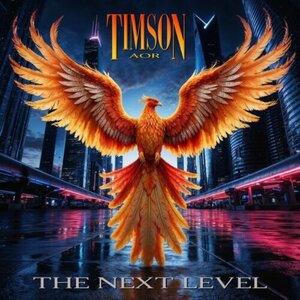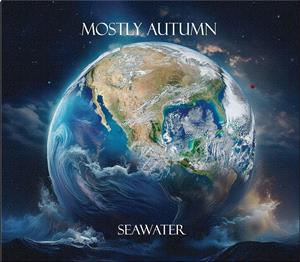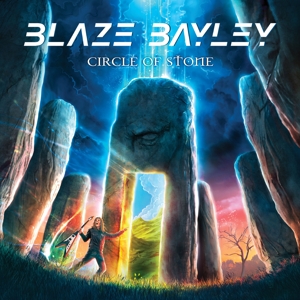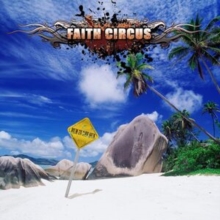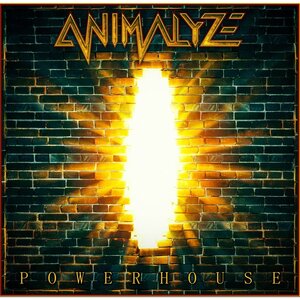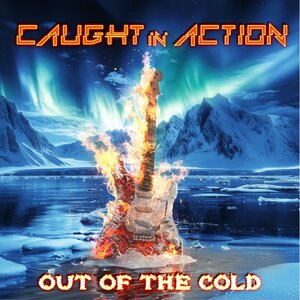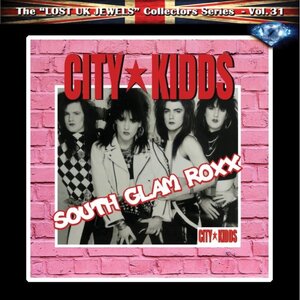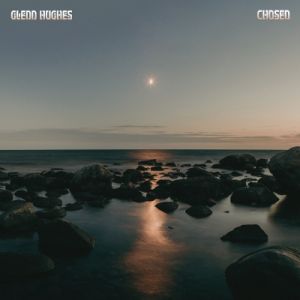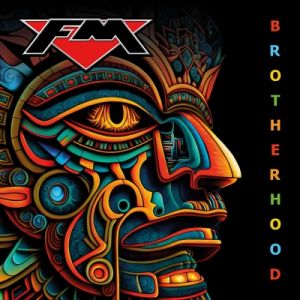News
inside story: JORN

In possession of a commanding voice that's more than worthy of comparison with his 70s idols and with a back catalogue spanning over twenty years, Jørn Lande requires little introduction to European Rock music fans. On the eve of the release of 'Hard Rock Radio', Jørn's diverse covers album, Fireworks catches up with the affable Norwegian frontman to discuss his less-obvious musical influences, his affinity with crows and of course, the legendary Ronnie James Dio.
A confession Jørn - having never considered myself remotely a fan of Kate Bush, your cover of 'Running Up That Hill' is astonishing. It's my absolute favourite track on 'Heavy Rock Radio' - you've transformed the song into a monster Hard Rock anthem! Please, explain this sorcery?
[laughs] Well, I've always had the desire to make the songs that I chose to record for the album a little heavier - to add some Jørnish flavour; if I hear a song I instantly think "that would be great with some crunchy guitars"! I also think that with certain artists you really identify with them - if you really love something when you are young then it's probably because it appeals to something authentic in you, it isn't about what's perceived as cool or not, and with Kate Bush I've always loved her way of writing, her voice. I really felt that the song, the energy, could be transformed by having a male voice, from being somewhat melancholy to an in-your-face Rock tune.
Listening to 'Blacksong' from your 2006 album 'The Duke', one can draw certain parallels with 'Running Up That Hill'... It's pretty obvious when you know [the similarity]. I'm actually surprised that I didn't hear that from other people - you're the first guy ever that went back to check it and say this! You've employed similar methodology on your take of (ABBA singer) Frida's 'I Know There's Something Going On' to equally fine effect. I didn't know of this song previously and could have believed that yours was the original. Thank you! Once more, the introduction of a male voice changes the song's energy, its power. You know, even though I grew up with Rainbow, Sabbath and Purple, when I write I have influences from the likes of Kate Bush, ABBA and other scenes. When you do these other, less identifiable songs they're more challenging and you have to sing a style of melody that's not typical to Metal. It's such a unique, strong song and so much credit must go to Russ Ballard (the songwriter) - I remember when the single came out I loved it, I just played it over and over.
I also had to listen to the original of Foreigner's 'Rev On the Red Line' - in isolation it sounds good, albeit hampered by a dated production sound. However your version sounds fresher and far punchier in its delivery. That song came out really strong - with some 70s songs the dynamics are very much of their time and so applying a contemporary feel to it really made a difference. I chose this track because it's one of Foreigner's lesser known songs compared to say their big 80s hits when they had more international commercial success - it's a hidden gem in a way and when people hear it they go, "Oh, I'd forgotten about that song. I have that album!"
It's a bit outside of what I normally do, my voice on this one is cleaner than my better-known style and I realised that if I tried to sing this one in a heavier tone then it would lose the essence of the number. You're no stranger to covering David Coverdale's back catalogue, having recorded terrific takes of 'Burn' and 'Fool For Your Loving' on 2007's 'Unlocking the Past', and it's intriguing to compare 'Hard Rock Radio's cover of 'Stormbringer' with the version Whitesnake included on last year's 'The Purple Album' - to these ears one example captures the groove on the original whilst adding an additional, twenty-first century dynamic - the other categorically does not. Congratulations.
David Coverdale doesn't have to prove anything anymore; I have deep respect for everything he's done and of course he was a strong influence on me as I was growing up. For me, the essence of whether you've succeeded with a song is if you feel like you've given something special - not just the vocals but the music too. There needs to be personal expression and I think that's the problem with the version you referred to. Unlike David Coverdale I don't have to worry about this huge 'legacy', I'm just a working guy who has enjoyed some success and so I'm more concerned with the end result of the song I'm recording - so in that sense I feel more freedom and less pressure than perhaps those who came before me. With 'Stormbringer' I think the constellations were working with me, everything was in place for a great result.
In my review of 'HRR' in this issue of Fireworks I wrote - only partially tongue-in-cheek, that your astonishing vocal delivery on Iron Maiden's 'The Final Frontier' could be interpreted as an advance résumé should Bruce Dickinson choose to one day trade his microphone for an airline captain's tannoy - anything to declare? [laughs] Thanks, of course I would take that call! You never know, the world is full of surprises and of course that would be such an honour; everybody loves some Maiden. I remember listening to 'The Trooper' and 'Aces High' - it's a part of me. I just like a good song and 'The Final Frontier' is a great composition which I thought could be reinterpreted as a Hard Rock anthem. Regarding the intro's synthesisers, I wanted to emulate ELO or Asia in order to bring a hi-fidelity colour to my vision. Let's talk about an artist that we both share a love for: Ronnie James Dio. I came to your music through your Dio tribute album and immediately recognised that your interpretation of his work was totally from the heart - you've almost become a living carrier of his flame.
I'm honoured to hear you say that. It's a mixed feeling as I like to carry the torch but I also like to be my own artist, to establish
my own thing; the second you stop and accept that you are just carrying another artist's legacy is the moment you cease to evolve. I pay tribute to Ronnie and everything he's done and I love his work - he still influences me and will do forever. What is it about RJD that keeps you coming back to his body of work?
Ronnie was the complete package: he decoded certain elementary things, whether through thinking about it or if it came to him organically; he chose his path, his register and channelled his voice so powerfully, for decades. When I sing his songs I feel a better singer; sometimes we perform [live] one or two of his songs - Rainbow or his solo material - and over a beer after the show I'll say to the band, "Isn't it funny how when we play these covers it makes us sound so much better?" When I write my own songs today I usually end up thinking about his way of singing because he figured out all of the aspects of being a singer and pulled it off every day, like a true working-class hero.
Barring a disgruntled former guitarist, all accounts point to him being a decent man too. He was a lovely person. In 2000 I was helping out Yngwie Malmsteen and we spent a month or so supporting Dio on their 'Magica' tour. Ronnie was very kind to me and over an Irish-coffee he'd tell me about his career, what happened with Rainbow and so on - it was a great moment for me. The accompanying press release for 'Hard Rock Radio' states that you started with a list of over forty songs which you then whittled down to a dozen, so can we expect another covers collection?
There are so many artists that I love, both female and male - there were another couple of Kate Bush songs that I was considering, also Rod Stewart, David Bowie, Nazareth too and so I would say yes to that question. Finally, you have a strong visual identity across your album's artwork in the form of the crow - what is the connection and where did it come from?
I find crows fascinating birds; they're so very intelligent and independent. I have a retreat in southern Sweden and whilst we were renovating it crows often found ways into the roof that they couldn't escape from - my wife and I would frequently find them trapped and in distress. When we rescued and released them, hundreds of crows would fly up into the skies from this big oak tree - they were watching us and I can tell you, when you do something like that for them they never forget it.
This article was used with kind permission and co-operation from FIREWORKS MAGAZINE
Buy the current issue
Current issue: #75:
[laughs] Well, I've always had the desire to make the songs that I chose to record for the album a little heavier - to add some Jørnish flavour; if I hear a song I instantly think "that would be great with some crunchy guitars"! I also think that with certain artists you really identify with them - if you really love something when you are young then it's probably because it appeals to something authentic in you, it isn't about what's perceived as cool or not, and with Kate Bush I've always loved her way of writing, her voice. I really felt that the song, the energy, could be transformed by having a male voice, from being somewhat melancholy to an in-your-face Rock tune.
Listening to 'Blacksong' from your 2006 album 'The Duke', one can draw certain parallels with 'Running Up That Hill'... It's pretty obvious when you know [the similarity]. I'm actually surprised that I didn't hear that from other people - you're the first guy ever that went back to check it and say this! You've employed similar methodology on your take of (ABBA singer) Frida's 'I Know There's Something Going On' to equally fine effect. I didn't know of this song previously and could have believed that yours was the original. Thank you! Once more, the introduction of a male voice changes the song's energy, its power. You know, even though I grew up with Rainbow, Sabbath and Purple, when I write I have influences from the likes of Kate Bush, ABBA and other scenes. When you do these other, less identifiable songs they're more challenging and you have to sing a style of melody that's not typical to Metal. It's such a unique, strong song and so much credit must go to Russ Ballard (the songwriter) - I remember when the single came out I loved it, I just played it over and over.
I also had to listen to the original of Foreigner's 'Rev On the Red Line' - in isolation it sounds good, albeit hampered by a dated production sound. However your version sounds fresher and far punchier in its delivery. That song came out really strong - with some 70s songs the dynamics are very much of their time and so applying a contemporary feel to it really made a difference. I chose this track because it's one of Foreigner's lesser known songs compared to say their big 80s hits when they had more international commercial success - it's a hidden gem in a way and when people hear it they go, "Oh, I'd forgotten about that song. I have that album!"
It's a bit outside of what I normally do, my voice on this one is cleaner than my better-known style and I realised that if I tried to sing this one in a heavier tone then it would lose the essence of the number. You're no stranger to covering David Coverdale's back catalogue, having recorded terrific takes of 'Burn' and 'Fool For Your Loving' on 2007's 'Unlocking the Past', and it's intriguing to compare 'Hard Rock Radio's cover of 'Stormbringer' with the version Whitesnake included on last year's 'The Purple Album' - to these ears one example captures the groove on the original whilst adding an additional, twenty-first century dynamic - the other categorically does not. Congratulations.
David Coverdale doesn't have to prove anything anymore; I have deep respect for everything he's done and of course he was a strong influence on me as I was growing up. For me, the essence of whether you've succeeded with a song is if you feel like you've given something special - not just the vocals but the music too. There needs to be personal expression and I think that's the problem with the version you referred to. Unlike David Coverdale I don't have to worry about this huge 'legacy', I'm just a working guy who has enjoyed some success and so I'm more concerned with the end result of the song I'm recording - so in that sense I feel more freedom and less pressure than perhaps those who came before me. With 'Stormbringer' I think the constellations were working with me, everything was in place for a great result.
In my review of 'HRR' in this issue of Fireworks I wrote - only partially tongue-in-cheek, that your astonishing vocal delivery on Iron Maiden's 'The Final Frontier' could be interpreted as an advance résumé should Bruce Dickinson choose to one day trade his microphone for an airline captain's tannoy - anything to declare? [laughs] Thanks, of course I would take that call! You never know, the world is full of surprises and of course that would be such an honour; everybody loves some Maiden. I remember listening to 'The Trooper' and 'Aces High' - it's a part of me. I just like a good song and 'The Final Frontier' is a great composition which I thought could be reinterpreted as a Hard Rock anthem. Regarding the intro's synthesisers, I wanted to emulate ELO or Asia in order to bring a hi-fidelity colour to my vision. Let's talk about an artist that we both share a love for: Ronnie James Dio. I came to your music through your Dio tribute album and immediately recognised that your interpretation of his work was totally from the heart - you've almost become a living carrier of his flame.
I'm honoured to hear you say that. It's a mixed feeling as I like to carry the torch but I also like to be my own artist, to establish
my own thing; the second you stop and accept that you are just carrying another artist's legacy is the moment you cease to evolve. I pay tribute to Ronnie and everything he's done and I love his work - he still influences me and will do forever. What is it about RJD that keeps you coming back to his body of work?
Ronnie was the complete package: he decoded certain elementary things, whether through thinking about it or if it came to him organically; he chose his path, his register and channelled his voice so powerfully, for decades. When I sing his songs I feel a better singer; sometimes we perform [live] one or two of his songs - Rainbow or his solo material - and over a beer after the show I'll say to the band, "Isn't it funny how when we play these covers it makes us sound so much better?" When I write my own songs today I usually end up thinking about his way of singing because he figured out all of the aspects of being a singer and pulled it off every day, like a true working-class hero.
Barring a disgruntled former guitarist, all accounts point to him being a decent man too. He was a lovely person. In 2000 I was helping out Yngwie Malmsteen and we spent a month or so supporting Dio on their 'Magica' tour. Ronnie was very kind to me and over an Irish-coffee he'd tell me about his career, what happened with Rainbow and so on - it was a great moment for me. The accompanying press release for 'Hard Rock Radio' states that you started with a list of over forty songs which you then whittled down to a dozen, so can we expect another covers collection?
There are so many artists that I love, both female and male - there were another couple of Kate Bush songs that I was considering, also Rod Stewart, David Bowie, Nazareth too and so I would say yes to that question. Finally, you have a strong visual identity across your album's artwork in the form of the crow - what is the connection and where did it come from?
I find crows fascinating birds; they're so very intelligent and independent. I have a retreat in southern Sweden and whilst we were renovating it crows often found ways into the roof that they couldn't escape from - my wife and I would frequently find them trapped and in distress. When we rescued and released them, hundreds of crows would fly up into the skies from this big oak tree - they were watching us and I can tell you, when you do something like that for them they never forget it.
This article was used with kind permission and co-operation from FIREWORKS MAGAZINE
Buy the current issue
Current issue: #75:
 The Power Of Rock
The Power Of Rock € EU
€ EU
